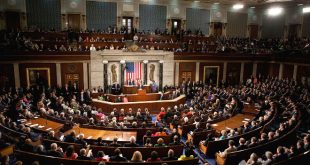On July 5th, 1852, Frederick Douglass delivered what would become arguably his most famous speech. “What to the Slave is the Fourth of July?” marked his first public defense of the Constitution as pro-liberty. This was a pivotal change of mind and marked a milestone in turning an escaped slave into one of America’s greatest defenders.
In his early days as an abolitionist stump speaker, Douglass interpreted the Constitution as pro-slavery. His mentor William Lloyd Garrison, editor of the Liberator, had long argued that the federal compromises with slavery made the Constitution pro-slavery. But that interpretation put them in the same camp as their opponents. As Douglass put it, “I am sick and tired of arguing on the slaveholder’s side of this question.” He thought the nation’s history and practice required that interpretation.
However, once Douglass launched his own newspaper, The North Star, and considered the arguments of other abolitionists (Lysander Spooner, Gerrit Smith, and William Goodell), he concluded that the Constitution was “a glorious liberty document.” He found that reading the Constitution as pro-slavery contradicted its Preamble—the mission statement of the federal union—and gave short shrift to the many levers of freedom it contained. Douglass also noticed that the Constitution made no explicit mention of slavery, and empowered Congress to ban the importation of slaves in 20 years (which it did in 1808). By 1852, he pronounced its “principles and purposes entirely hostile to the existence of slavery.”
Remarkably, he was all praise for the founders, turning a blind eye to their slaveholding and highlighting the courage of their convictions. Their commitment to “justice, liberty and humanity” made them “statesmen, patriots and heroes.” Reconsidering his previous judgment of the character of the Constitution, he now pronounced its “principles and purposes entirely hostile to the existence of slavery.” Douglass held his fire for the current generation.
This led him to deliver his July 4th oration as an ode to “the illustrious Fathers of this Republic” but a denunciation of his own generation, which failed to see the urgency of eradicating slavery from American soil. “We have to do with the past,” he exclaimed, “only as we can make it useful to the present and to the future.” He condemned those who gloried in the nation’s past — “We have Washington to our father!”—without trying to align their practice with their profession.
 Lucas Morel is a Senior Fellow of the Claremont Institute and professor of politics and Head of the Politics Department at Washington and Lee University.
Lucas Morel is a Senior Fellow of the Claremont Institute and professor of politics and Head of the Politics Department at Washington and Lee University.
 CURE News and Clergy Blog News and Commentary for Christians
CURE News and Clergy Blog News and Commentary for Christians




As we would learn, Article 1, Sec. 9 of Constitution was generally flouted long after 1808 in terms of “migration of slaves” into existing states.